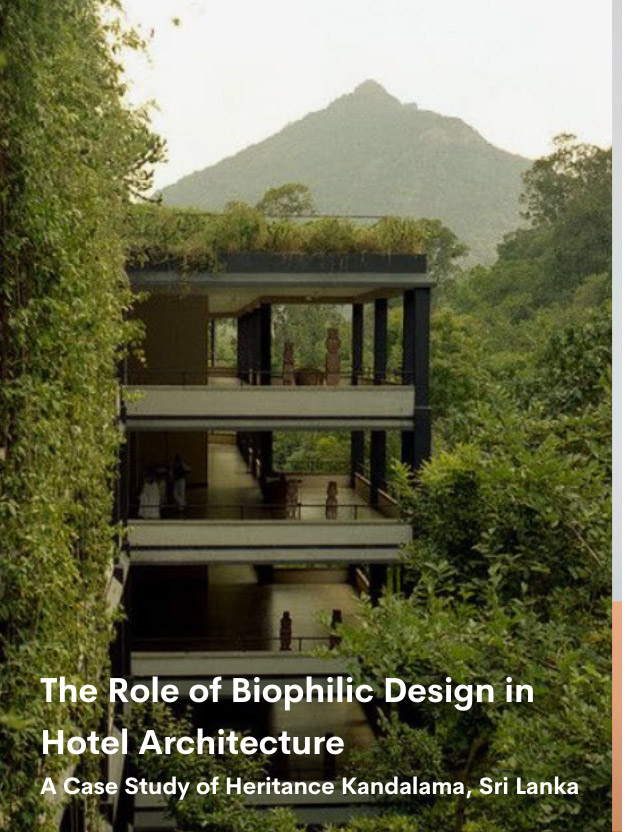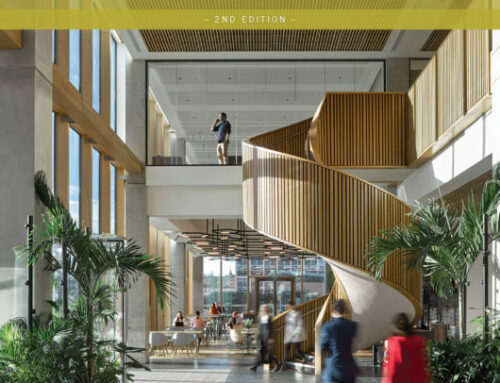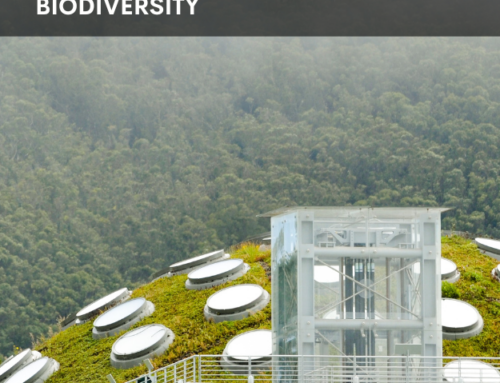The Role of Biophilic Design in Hotel Architecture

Humans have a natural affiliation with nature which can even be genetically traced back into history. Biophilia is the inherent human inclination to affiliate with nature, that even in the modern world, continues to be critical to people’s physical and mental health, and well-being. The Hospitality Industry is a sector that can get the maximum benefit from this affiliation. Guests’ opinions and feedback are highly valid, as they are the real users of hotel spaces. The primary aim of the research is to correlate the user experience to the role of biophilic designs in hotel spaces. This qualitative study is based on the twenty-five-point biophilic design framework by Kellert and utilises user surveys to collect and collate relationships. Heritance Kandalama, Sri Lanka is analysed as a case study.
Results show that users associate biophilic design elements as essential generators of their spatial experience and that the guest experience of study-identified hotel spaces varies according to different biophilic triggers. Further, spaces created within a conceptually cohesive whole can hold a varied experience. In conclusion, the application of the biophilic framework as a guide for architectural meaning and spatial variance of experience is deemed effective.





